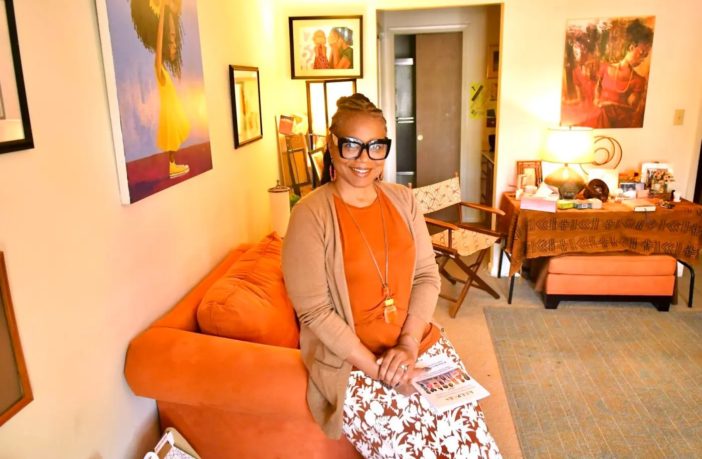By Ashley Winters,
St. Louis American
The school year will soon fade into summer, which means family vacations, sleeping in, and staying up late.
According to the American Library Association, summer reading encourages youths to develop a lifelong habit of reading. It also helps those who are reluctant to read books become more interested through activities over the summer. Students that have a summer book reading plan in place are at a lower risk of losing reading skills from the previous school year.
Scholastic research shows that summer reading helps youths foster social-emotional development. 83 percent of educators say reading helps students understand people that are different from them, 81 percent say reading helps students develop empathy, and 81 percent say reading helps students see themselves in characters and stories.
The St. Louis American interviewed Chandria Taylor, Rebecca Clark, and Tracie McGhee, children’s book authors, they discussed what their book is about and the benefits of summer reading.
The ABC’s To Black Boy Joy
 Authors are encouraging Black students to grow their confidence with characters that look like them in their stories. (Courtesy Photo)
Authors are encouraging Black students to grow their confidence with characters that look like them in their stories. (Courtesy Photo)
Written by Chandria Taylor, a kindergarten teacher in the metro-east, the book encourages self-confidence in young Black and brown boys ages 6 to 10 years old. For example, ‘B’ is for Black King, celebrating African royalty.
“It hurts my heart when my kindergartner leaves my class reading all their sight words, and when they get to first grade their teacher complains to me about how behind my former student is in reading,” said Taylor.
Taylor advises families to make reading fun. They can have their young readers read the signs of restaurants and local attractions. She also recommends online sites including pbskids.org and Starfall.com.
Summer reading gives students that extra push to be avid readers.
Taylor’s books can be found on Amazon: Witty Kids: I Dream To Be
 Educators say that reading helps
Educators say that reading helps
students improve cross-cultural
understanding. (Courtesy Photo)
Author Rebecca Clark, Clark is a mother of two— a high schooler and a second grader. Her book teaches young minds to explore a world of endless possibilities through a variety of careers – such as a veterinarian, astronaut, or engineer. Clark’s book encourages kids to dream beyond their imagination, and to see themselves in careers they thought they would never be in. Her book is for readers between first and fourth grade.
During the Covid-19 pandemic, Clark’s youngest daughter was entering kindergarten and she witnessed the struggles her daughter was facing learning through a computer screen. She says that her young learner missed learning to read the traditional way, and not having that one-on-one time with her teacher caused her to fall a little behind in reading.
“Summer reading gives students that extra push to be avid readers,” said Clark.
“I encourage my daughter to take a book with her wherever she goes, even if it’s to the park,” said Clark as she smiled with pride.
Clark’s books can be found at Witty Kids Club: The Red Book
Written by Tracie Berry-McGhee, a therapist who focuses on the mental development of pre-teen through young adult girls, “The Red Book” features letters and poems written by women from St. Louis. She calls her books “teen girls’ advice for the soul.”
Berry-McGhee noticed during the pandemic more teens were turning to TikTok than picking up a book. From her point of view, teens lose interest in reading because many books don’t speak to them.
 Students with a summer book plan are less likely to lose reading skills from the previous year. (Courtesy Photo)
Students with a summer book plan are less likely to lose reading skills from the previous year. (Courtesy Photo)
She recommends parents should start a book club within the family— the choice of the teen. This creates bonding and gives them something to do besides staring at a screen. She also recommends books that have short stories and recommends that teens start a book club within their friend circle.
“Teens having books to read that spark their interest helps keep them out of trouble,” said the therapist.
Berry-McGhee says that as a community we must push literacy, enjoy reading, and not make it a chore. She said, “Our children have nothing to do, but do something they will regret.”
This article was originally published by the St. Louis American.



